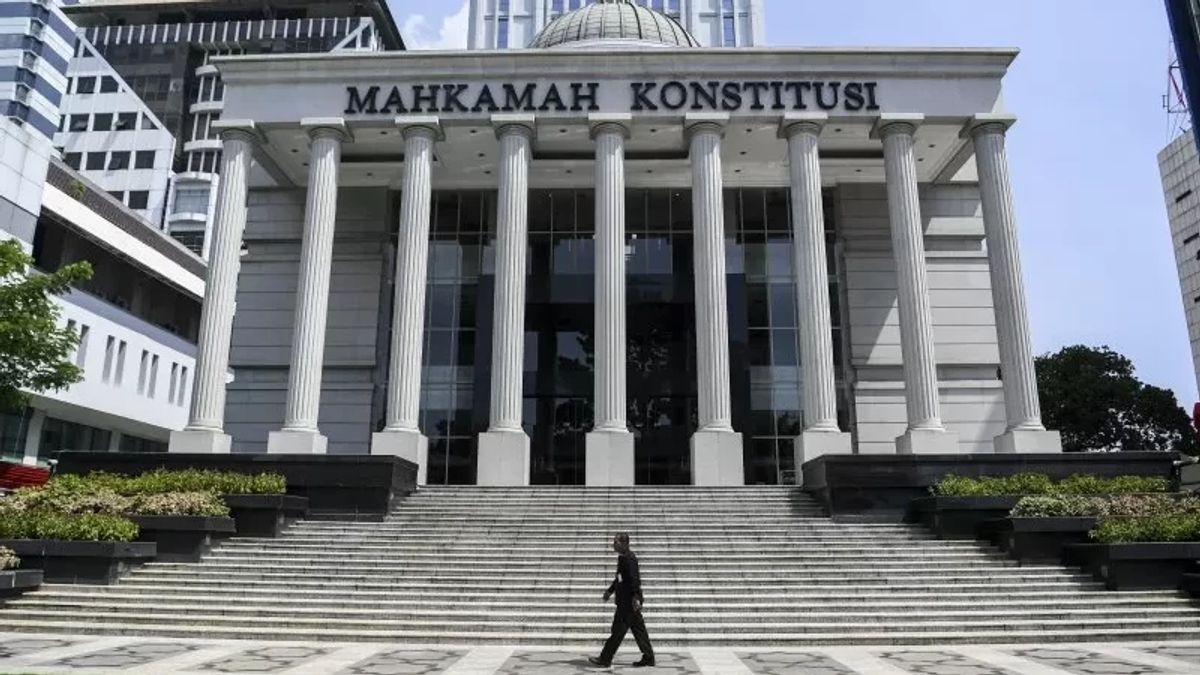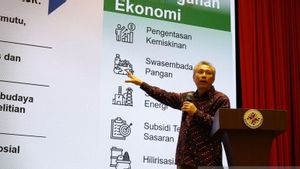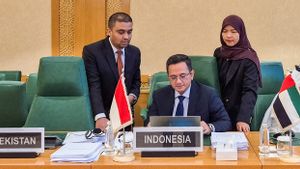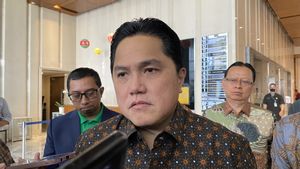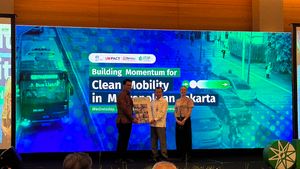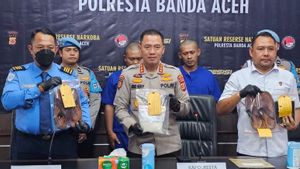PAPUA - The Panel of Judges of the Constitutional Court (MK) rejected the lawsuit of Law Number 1 of 1974 concerning Marriage. The judicial review was proposed by E. Ramos Petege, a young man from Gabakanunu Village, Central Mapia, Papua Province.
"Rejected the applicant's application in its entirety," said Chief Justice of the Constitutional Court Prof. Anwar Usman when reading the verdict of case Number 24/PUU-XX/2022 in Jakarta, Tuesday, January 31, confiscated by Antara.
In the main point of his petition which was read out by Judge Arief Hidayat, the applicant conveyed a number of arguments stating the unconstitutionality of Article 2 Paragraph (1) and Paragraph (2) and Article 8 letter f of Law Number 1 Year 1974 concerning Marriage.
According to the petitioner, marriage is a human right which is God's decree or destiny. Everyone has the right to marry anyone regardless of religious differences.
On that basis, he said, the petitioner assessed that the state could not prohibit or not recognize marriage of different religions. According to him, the state must also be able to provide a solution for couples of different religions.
Then another reason the applicant sued the Marriage Law was regarding Article 2 Paragraph (1) in essence, it was judged that it had given a different interpretation to what is meant by "the law of each religion and belief".
According to the petitioner, many religious institutions are not willing to carry out different religions, including the refusal to record civil records by civil servants.
If marriage is only allowed with the same religion, this is considered to result in the state essentially forcing its citizens.
Furthermore, according to the petitioner, Article 2 Paragraph (2) gives an interpretation for the implementer of Law Number 1 Year 1974 it is not possible to carry out marriages of different religions by generalizing various interpretations in religious law, and their respective beliefs to avoid marriage of different religions.
Finally, the petitioner considers Article 8 letter f to cause ambiguity, running away, legal uncertainty in the context of marriage of different religions as a legal event that is allowed or prohibited in the respective religious law and beliefs.
In line with that, Constitutional Court Judge Prof. Enny Nurbaningsih said human rights are rights recognized by Indonesia which are then contained in the 1945 Constitution as the constitutionality right of citizens.
However, human rights in force in Indonesia must be in line with the philosophy of Indonesian ideology based on Pancasila as the identity of the nation.
He explained that in the context of marriage which is the subject of case problems, there are differences in the construction of protection guarantees between Universal Declaration of Human Rights (UDHR) and the 1945 Constitution. Article 16 Paragraph (1) UDHR states explicitly "Men and women of full age, without any limitation due to race, nationality or religion, have the right to marry and to found a family".
If it is translated "Ladies and adult women who are not restricted to nationality, nationality or religion, have the right to marry and to form a family".
Meanwhile, the 1945 Constitution has a different formulation construction through Article 28B Paragraph (1) which states, "Everyone has the right to form a family and continue their descendants through a legal marriage".
Based on the formulation of Article 28B Paragraph (1) of the 1945 Constitution, there are two rights that are guaranteed firmly in the a quo provisions, namely the right to form a family and the right to continue descendants.
The English, Chinese, Japanese, Arabic, and French versions are automatically generated by the AI. So there may still be inaccuracies in translating, please always see Indonesian as our main language. (system supported by DigitalSiber.id)
